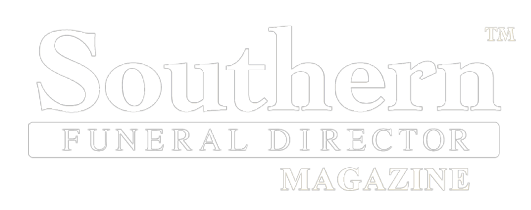(404) 312-6640
How to Develop Habits that Support Proactive Preneed
In Atomic Habits, James Clear shares the story of Trent Dyrsmid, a rookie stockbroker who used a simple habit to bring in more than $5 million in his first year at the firm – and that was in 1993 dollars. His approach was simple: he would set two jars on his desk every day. The first held 120 paperclips, and the second was empty. Whenever he made a sales call, Trent moved a
paperclip from the first jar into the second. He would not stop making calls until he had moved all his paperclips.
In The Pursuit of Happyness, Will Smith dramatizes the real life of Chris Gardner, a homeless wouldbe salesman that secured his dream job with another simple habit. “In order to not waste any time, I wasn’t hanging up the phone between calls… I realized that
by not hanging up the phone, I gained another eight minutes a day.”
After years of failed attempts, a writer I know set a New Year’s resolution to write for 20 minutes every day. Some days he wrote one decent sentence, others he wrote 10 paragraphs. But he could not go to bed unless he had written for 20 minutes. After three years of writing every day, he finally had his first novel.
As more and more business books are detailing, habits have a tremendous impact on goal setting and achievement. The habits we set will determine how successful we are both personally and professionally.
Understanding Habits
Psychologists estimate that the average person makes 35,000 decisions a day. Some are big, like deciding on a new career path, while others are so small that we don’t even realize we’re making them. For example, we all brushed our teeth this morning, but how many of us actively decided exactly how to put toothpaste on our toothbrush?
Our brains are in a constant state of efficiency-seeking, so we establish habits that save us time and brain power. We form neural pathways that help us streamline less impactful, daily decisions, freeing up time and willpower for the big, important ones.
You put toothpaste on your toothbrush every day, so your brain has wired it in as a habit. You open the bathroom drawer, grab the toothbrush and toothpaste and that habit takes over. Before you even think about it, your teeth are clean, and you’re on to the next part of your morning routine.
Psychologist Charles Duhigg summarizes this as a habit loop. First, our brains receive a cue which puts our brains on autopilot and tells us which habit to use (grabbing the toothpaste and toothbrush). Then, we exercise a routine (putting toothpaste on the brush and cleaning our teeth). Finally, we experience a reward (minty fresh breath and smooth, clean teeth).
We cannot change the way our brains are hardwired to create habits, but we can use that system to our advantage.
Goal-Based Habits
For me, the easiest way to start new habits is to do what Brené Brown calls “painting done.” I imagine what the ideal outcome would be, then I back up from there to determine what I need to do to make that outcome a reality.
If your goal is to write $500,000 in preneed in 2023, for example, you can start by figuring out how many funeral plans you would need to sell to get there. If your average sale is $5,000, you would need to sell 100 funerals to reach your goal. To close 100 sales, you may need to meet with 150 families. To meet with 150 families, you may need to set 200 appointments. To set 200 appointments, you may need to call 1,000 people.
Calling 1,000 people this year – that’s something you can turn into a habit.
Let’s say you commit to making five phone calls every weekday. If you commit to that for 50 weeks this year (we all need a vacation, after all), at the end of the year you will have called 1,250 people – well over what you need to be able to set, hold and close enough appointments to reach your $500,000 goal.
Sounds easy, right?
Building Good Habits
It’s one thing to know what you need to do to be successful, it’s another thing entirely to build the daily habits that will get you to your goal. Everyone’s brains are wired a little differently, so you may find that the way your coworkers establish habits doesn’t work for you or vice versa. But there’s a good chance that tweaking some point in the habit loop will help:
1) Cues: One of the easiest ways to rewire your brain with new habits is to link them to existing ones. For example, if you know that you get up from your desk at 9:30 every morning for a coffee refill, link phone calls to that habit: “After I refill my coffee, I will sit down at my desk and make five phone calls.” The existing habit – refilling coffee – becomes the cue for the new one
– making phone calls. You can also try to make your habits automatic by putting the cues into your line of sight. For example, when you finish your work for the day, close your laptop and move the phone to sit on top of it. When you start again the next day, the first thing you will see is that telephone, serving as a cue to start your habit loop. This can also work in reverse – like we
saw with Chris Gardner. He rewrote his habit loop so the end of a phone call (the cue) led to a new routine (redialing instead of hanging up the phone) which led to a reward (gaining eight more minutes in his work day). If you’re struggling to break a bad habit, consider removing the cue or – if you can’t remove it entirely – rewiring your brain to do something different whenever
you encounter it.
2) Routine: The routine is the hardest part of the habit loop to change because, at least initially, it requires the most discipline. Eventually, your brain’s habit loop will take over, and you won’t have to actively decide to make phone calls after you get coffee. The cue will do its work, the routine will kick in and then you’ll enjoy the reward. But until that happens, you’re going to have to do the heavy lifting to follow through on your habits. Don’t worry, though, experts believe that it only takes us 28-30 days for a new routine to become a habit.
3) Rewards: Don’t overlook the power of rewards to reinforce habits. The most effective rewards should be simple, repeatable and immediate. It’s okay to have a long-term reward (i.e. “When I have made 100 phone calls, I’m treating myself to a massage”), but that’s not as powerful when you’re first establishing habits. A reward you can enjoy right away closes the habit look and makes it more likely you’ll stick to your goal. For Trent Dyrsmid, moving a paperclip from one jar to the next was enough of a reward to keep him motivated. For you, it might be enough to keep a tally of the calls you’ve made. Find something you can do immediately after completing your habit to reinforce its benefit.
Habits don’t have to be difficult – in fact, they’re our brain’s way of making life easier. But getting started can feel overwhelming. Remember to start small, leverage the systems and habit loops your brain is already programmed to follow, and keep your eyes on your goals.
Danielle Burmeister is Vice President of Marketing and Communications for Homesteaders Life Company, a national leader in secure, reliable preneed funding. Danielle grew up in a small apartment above her family’s funeral home, cleaning cars and playing “Taps” at graveside services. She later worked in event marketing for the Iowa State Fair and as a professor of English
and Communication at a nearby college, before finding her way back to funeral service. In Danielle’s current role, she leads the team responsible for all aspects of Homesteaders’ marketing and branding. Danielle has a Bachelor’s degree from Central College and a Master’s degree from Iowa State University.






Comments